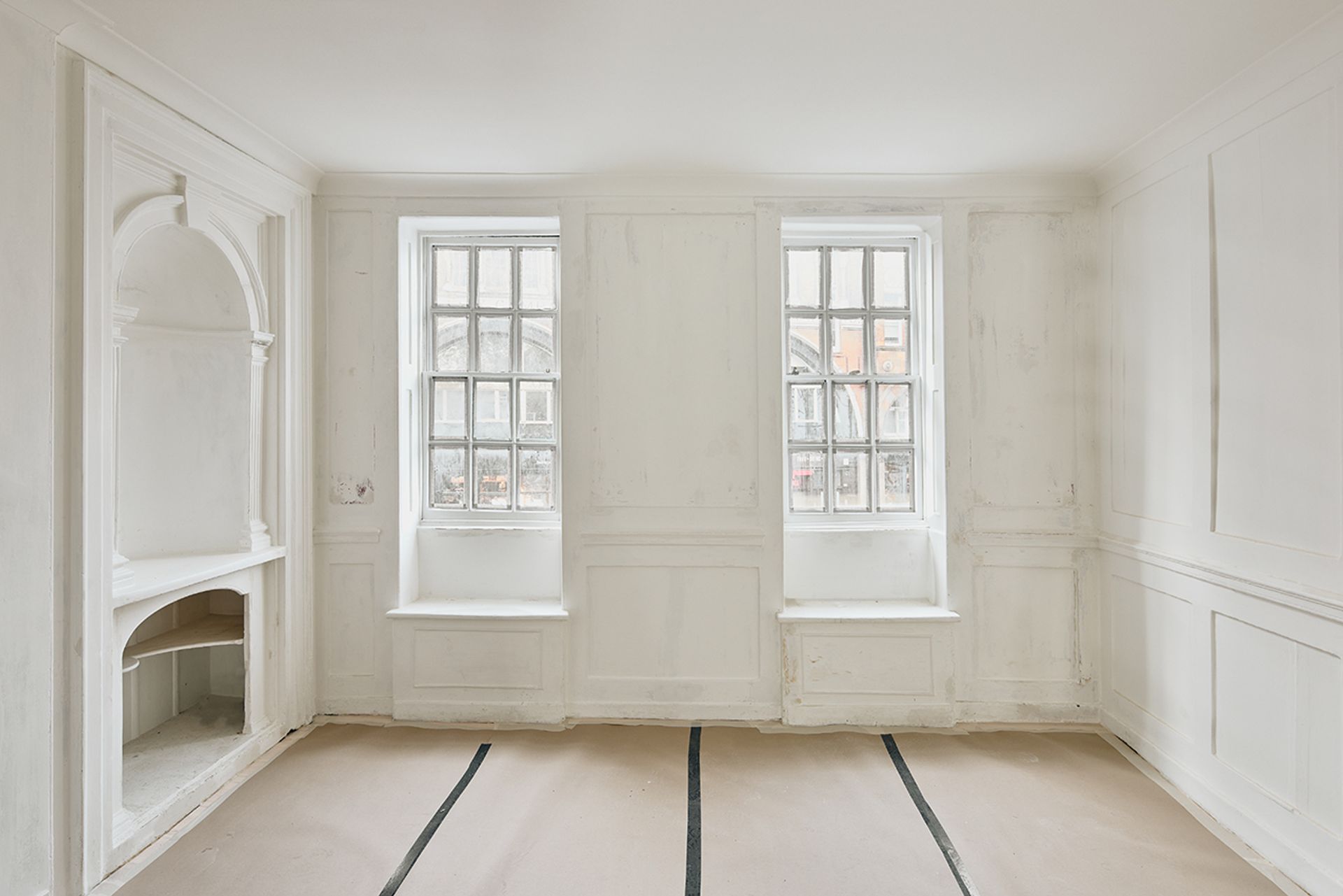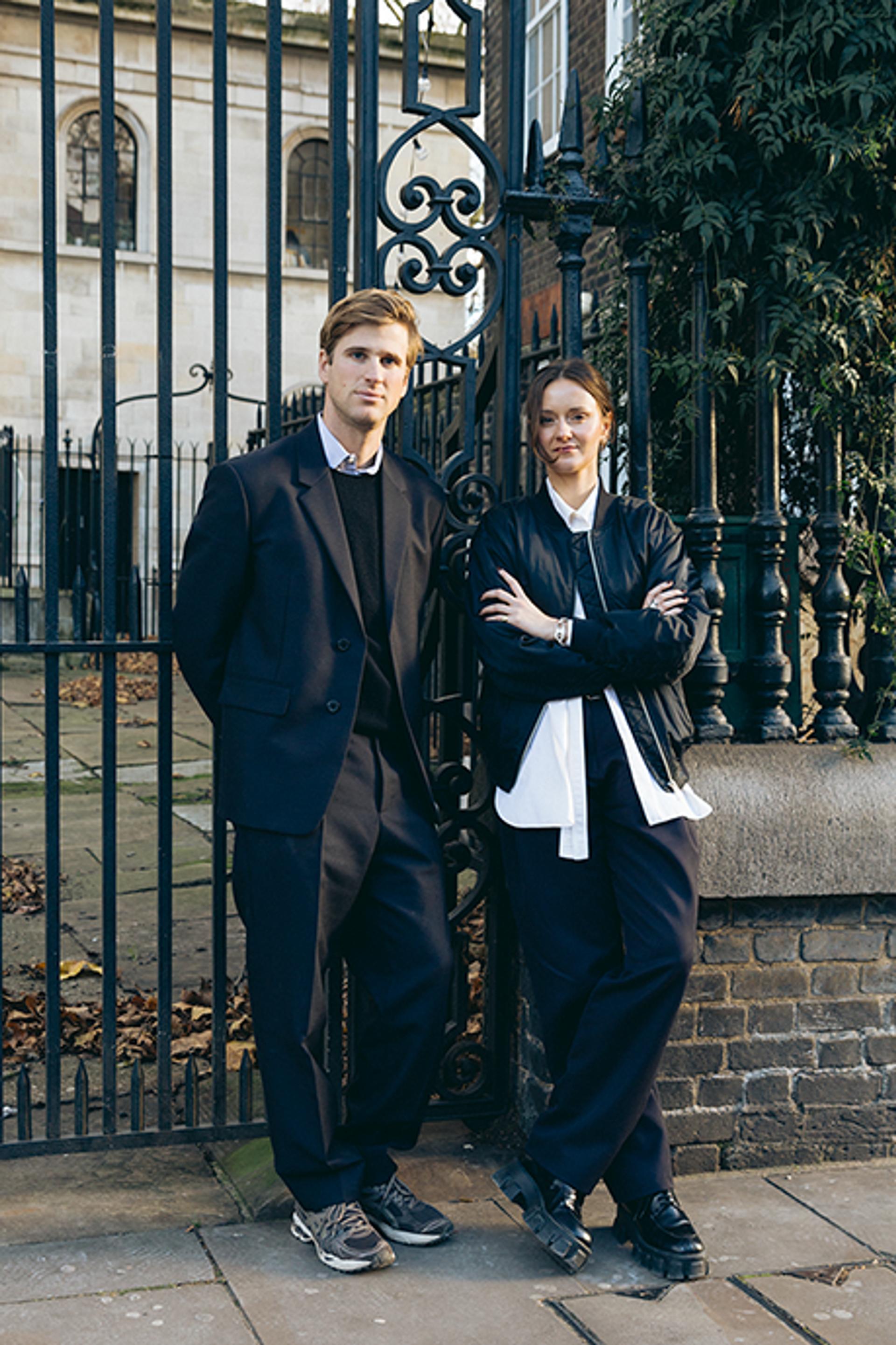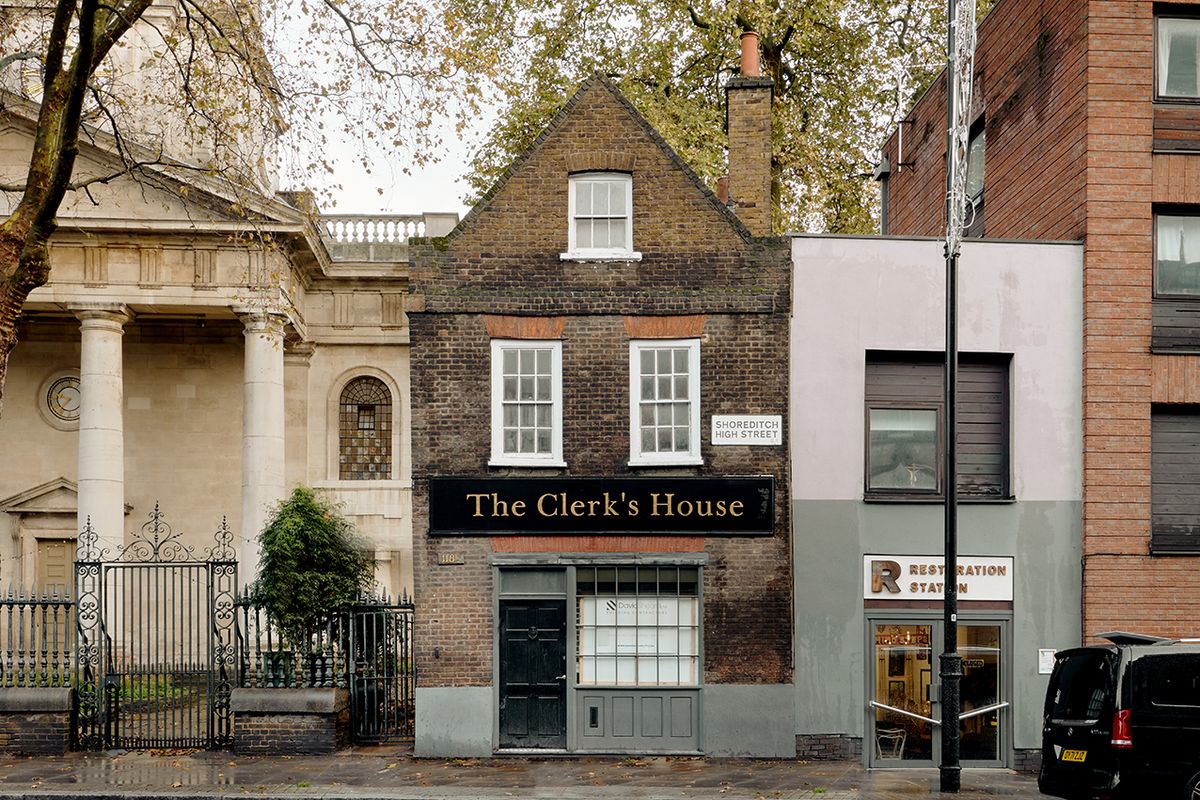After seven years of operating from a single location in Shoreditch, east London, Emalin gallery will open a second space in the neighbourhood in January next year.
Founded in 2017 by Leopold Thun and Angelina Volk, Emalin is one of the most prominent commercial galleries to have opened in London in the past decade. Its 16-strong artist roster includes Sung Tieu, a 2021 nominee for Germany’s National Gallery Prize, Augustas Serapinas, whose performance installation was shown at Unlimited at the latest Art Basel fair and the market darling Alvaro Barrington.
While the assumed logic of gallery expansion might dictate that Emalin should open its second space abroad, or at least in another part of London, the motivation behind the new location stems more from the building itself, rather than a desire to grow bigger, Thun says.
The Clerk’s House, where Emalin’s second location will be based, is an 18th-century Grade II-listed building that lays claim to being the oldest in Shoreditch. Believed to have once been a watch house for bodysnatchers in the adjoining St Leonard’s Church, in recent years it was used as a pop-up space and has been vacant since the Covid-19 pandemic. “The opportunity was too good,” Thun says. “It’s an iconic building whose history will provide a new and exciting setting for artistic exchange and exhibition making.” A medieval side door to the building, salvaged from a now-destroyed church, is thought to have been used by William Shakespeare and his acting company.

Interior of the Clerk's House
Courtesy of Emalin. Photo: Stephen James
Unlike the gallery’s existing location on nearby Holywell Lane—a large, open-plan first-floor space with large windows revealing the bustle of Shoreditch on three sides—the Clerk's House, with its multiple storeys and 18th-century dimensions, offers both a more intimate and circuitous experience. “Everything is on view all at once in the original space, you are immediately confronted with the city outside,” Thun says. “The new location can provide unexpected encounters.” He mentions the gallery’s artist Özgür Kar as one who might particularly benefit from the new space. “Kar's sculptures often incorporate music and spoken word. It might be intriguing to hear a work in an adjoining room before even seeing it.”
Beyond the obvious draw of being able to show twice as much art, doubling down on east London offers other sales strategies: “Having two spaces close to each other prolongs the visit of a client to Emalin,” Thun says. “There is an east-west divide in London, with many galleries located in Mayfair and Soho. So if our clients are travelling to east London—which is easier now with the Elizabeth Line—we want to offer them as much as possible and maximise their time here. As the luxury industry demonstrates, investing in experience is increasingly important. A flagship store isn't about displaying goods but the customer experience itself."

Emalin's founders, Leopold Thun and Angelina Volk
Courtesy of Emalin. Photo: Stephen James
Emalin’s reified commitment to Shoreditch comes at a time of continued strength for east London's art scene. Commercial galleries have recently opened in nearby Farringdon and Bethnal Green and the newly renovated, non-commercial Raven Row is a short walk away. Thun also points to Gagosian Open, an offsite exhibition space by the eponymous gallery that placed works by Christo in a house in Spitalfields to coincide with Frieze London this October, as another example of the area's "cultural richness".
Emalin's new space will contain a library and archive, alongside exhibition spaces and offices. With its opening, the gallery will shift its exhibition schedule from six shows per year to four in each space. "Six weeks is often not [long] enough compared to how long the artists have prepared for the shows," Thun says.
The forthcoming space will be inaugurated by a group show including Barrington, Nicholas Cheveldave and Stanislava Kovalcikova. A solo show of Costa will then open in March. The gallery has a ten year lease on the property.


